|
Pakistan's metal scene has fluctuated over the past 2 decades since it's first emergence way back in the late 90's, but despite this the scene has grown and grabbed ever-expanding attention from the wider global metal community... and now, is perhaps one of the most exciting scenes to emerge on the international stage, further enhancing the need for the western metal music industry to take note and a chance on the flagbearers of the Pakistan metal scene. One band who carries the flag is Primaeval, a mixture of heartfelt experimenting and ritualistic heavy metal, quite the contrast to many other bands in this part of Asia; whose extreme metal faction is unsurmountable. Farhan Rathore spoke to Global Metal Apocalypse about the band's humble origins, international recognition following their debut EP launch, sexism within the scene, the origins of the metal scene and the challenges bands faced, among other topics. "Our love for metal won't die because this is a genre that has saved many lives." Tell us about your band name Primaeval - why and how did you choose it? After all it relates to the earliest times in history. "So it's a funny story. The band is founded by one of the oldest active metal musicians in Pakistan, Farhan Rathore. Who has been a musician since 2010. He approached a couple of his friends in 2020 with the idea of creating this band, after taking a break in 2017. They thought it was a great idea and we had named the band Nephilim, but we found out there are a dozen more bands with this name, so we started working on coming up with new names, and then medieval popped into my mind, but I thought what can be more earlier, so that's where Primaeval came into my mind. Basically signalling to the fact that we are old school metalheads." You released your debut EP 'Horcrux' at the back end of 2021, how was it received locally and overseas? " 'Horcrux' was not as well received as we'd have wished for locally, but outside of Pakistan the response was good as always. Mostly because of the quality of listeners is far better outside of Pakistan. Nothing to take away from our loyal fanbase here locally who have been brilliant always. But generally it didn't do well as good locally as it did overseas." As it's your first release, how did you come up with the song tiles and lyrical content? Was the EP's creation straightforward? "It's actually quite interesting. 'Doom' and 'Bleed' from the EP were written by Farhan in 2013 when he was with his old band, but we got the chance to record those songs now since he wanted those lyrics to be used. Nocturne (alternate version) is our full length album's title track basically (a small chunk of that) used in the EP in a toned down way. It was a pretty personal approach with the material because we are emotionally attached to the songs in the EP. To round off we covered 'I Long' from one of our favourite bands Saturnus. And yes the process was very straightforward because we had recorded the instruments before even planning to put these songs in the EP." Has Byzma Aref your female vocalist, received any sexist comments by those in the Pakistani metal scene? Generally speaking, what is the attitude towards female musicians in Pakistan? "First of all, Byzma is talented. A voice that our metal scene hasn't witnessed, you'll be hearing brilliant work from her end soon. And about anything negative being thrown her way, we can confidently say NO. Females are generally mistreated in the local scene, but with our female vocalist, this hasn't been the case luckily." What challenges do metal bands in Pakistan face? Is there an established music industry in Pakistan (focusing on the mainstream)? "Metal has never got the recognition it deserves unfortunately. One band recently made it to a mainstream music show, only to upset the fans because it was a pop themed show. The mainstream industry is more established around pop and hip-hop, and it looks down upon metal like it's a bad genre or something and doesn't give equal opportunities or exposure to a lot of metal musicians. So it's a day to day struggle building up your audience and putting out original music which is self funded. Not to forget arranging gigs from your own money with free for all entries. Which demotivates us all. But our love for metal won't die because this is a genre that has saved many lives." Have there been any well-known international bands play in Karachi or elsewhere in Pakistan? If so, who? "To our knowledge, no well known rock or metal bands from the international scene have been here. Mostly because of the hostile situations and the religious fanaticism. Religious extremism still exists but we've learnt to stay away from it now. But we don't see any big acts coming here to play. Not like India where many big bands have played shows and festivals. We probably will never get to see that sort of thing here unfortunately." Tell us about your day jobs, what do you do (if employed) and do you talk to colleagues about metal music? "Farhan is a Senior Customer Success Manager at a multinational company and works at night (as they work according to the US time zones). Byzma is a Data Analyst for a Canadian company (remotely employed), Athar is in the lead HVAC designer for a construction company and Rumi is an Architectural Engineer. We all talk to our colleagues and friends about metal all the time. We are trying to build a large scale community so that Metal can thrive. We engage with like minded people to discuss ideas and share knowledge where needed. It's well received too." How did you get into metal music and what do your parents think of the genre? "Farhan has been into metal since the 9th grade of school, so that makes him a metalhead for 18+ years now. Athar and Rumi got into the metal scene after being hardcore Metallica and Opeth fans for a long time, deciding to make music of their own and have been active musicians for 10 years now. Same goes for the other members, all have been metalheads all their lives and just stepped into the music scene when they felt like it basically. Initially all of us got some stick for this loud, aggressive music that we listened to. But now that we've grown up, we get little to no stick for it hahaha." 2022 is upon us and so what plans does Primaeval have for the year ahead? Could we see the EP be physically released? "Good question. We're looking for a label that can sign us and distribute our music physically. Though we're in talks with a local distribution label that might do it digitally, it's not done yet though. It's very hard to find a label or publications that might help you market your work. About 2022, we can promise a full length album is on the way, it is something Pakistan has never witnessed. It's progressive and very dark. We've put all of our emotions and experience into it. The album will bring the wow factor for all of our listeners locally and overseas. The album is named "Nocturne". We are in the recording phase, it'll be out later this year." https://www.facebook.com/PrimaevalBand https://primaeval.bandcamp.com/releases
1 Comment
India, Pakistan, Bangladesh and Sri Lanka, they all have a lot in common. Historical connotations, geographical locations, seasonal conditions, cricket, religious festivals among others... but nothing as striking as the sheer size of their metal music scenes. Sure not many people in the West know that these scenes exist with India being the exception, after all Kryptos and Demonic Resurrection have been gracing the UK and European shores many times. As for the rest of the subcontinental contingent, there is Orobas from Bangladesh causing a buzz, Pakistan's Black Warrant perhaps being one of the oldest bands from there and Sri Lanka's Dhishti leading the Sri Lankan Black Metal wave... overarching all of that is a passion for extreme music, a passion for metalheads expressing themselves and a passion for thriving in an 'Extreme Nation', this is what Indian director Roy Dipankar's latest documentary is called and is about. He gladly spoke to GMA about the documentary, the troubles funding and filming such a feat and what it means to be a metalhead in this part of the world. "The subcontinent now has her own flag-bearers in extreme metal being recognised worldwide thanks to the internet, supportive distributions and record labels." Roy, what gave you the idea of doing a documentary about the Indian subcontinent's extreme underground metal scene? "My affinity for independent and alternative music has traversed a long way, a decade plus later, manifesting itself as a film via videos and documentaries capturing the panorama of non-mainstream music and emerging voices from the Indian subcontinent. The professional experience in the commercial and institutional sector of record labels eventually left me not so satisfied in terms of creativity, progress and space to showcase emerging sub-cultures and alternative voices of the youth. I began to feel (and see) the societal fissures and cultural bias (injustice) which ran from pillar to post, within mainstream culture, be it the case in India or Bangladesh, Pakistan and Sri Lanka. The more I searched, the more I discovered concurrent narratives of musicians, fans and propagators from far corners of the underground subcontinent. The fledgling emergence of an unique subculture against the backdrop of religious radicalism, rising nationalism, traditional hegemony makes this documentary loaded in contrast, conversations and controversy. This led me to develop a first-of-its-kind attempt to document and showcase voices, the prevailing conditions and questions raised by metal musicians from the fringe communities based in India, Pakistan, Sri Lanka and Bangladesh. Almost five years in the making, 'Extreme Nation' is now debuting at various film-festivals, media outlets and panoramas in India and outside." What challenges did you have to overcome to deliver the documentary? How long did it take to create? "Several! Especially when one embarks upon an independent task towards creative art which is all about subversiveness and anti-creation. Be it the interpersonal relationship of the countries, or the highly elusive or inert nature of bands and characters involved in the underground. Finding the right people and convincing them to be a part of a bigger spectrum was a massive deal. Financial hurdles were / are the most difficult ones. Especially when the international documentary world is looking at India to produce more apparent hard-pressed issues related to environment, gender identity and equality, caste-based politics and such, a feature film on subculture takes a second or rather a second-last silver lining on the path to fruition. Security was another concern regarding the cast and 'politically sensitive' content due to long term internal disputes and border-territory issues across the subcontinent. Diplomatic problems like visas have always been a chimera for extreme musicians to travel across our borders for performances. Struggling against the pre-fixated mindsets towards music that is metal, noise, power electronics, hardcore, is tough. But I took this as an anti-morose challenge which is both exciting and satisfying as the awareness spreads... a film about dark music! A film about the seething yet fragile voices within nations of the Indian subcontinent." Do you feel that Sri Lanka, India, Bangladesh, and Pakistan (along with Nepal, Bhutan and The Maldives) are being noticed worldwide as forces within the extreme metal scene? "Very much. The subcontinent now has her own flag-bearers in extreme metal that is being recognised worldwide thanks to the internet as well as supportive distribution and syndication by record labels." What have you noticed about the scenes there, that at first came as a surprise to you? "More than as a surprise, the feeling was that of a kind of discovery. The bands, their message, performances and imagery came across as crisp and sharp. It was both unique and seminal that would lay the path of an organised scene is what became clear to me." Do you feel it will come to a point where a lot more Western labels take note of bands in this region; with Demonic Resurrection and Kryptos leading the way? "Further to the aforementioned bands there are substantial releases of Indian subcontinental bands like Genocide Shrines, Konflict, Tetragrammacide to the now recent Kapala that has gained severe international recognition by release through 'Western labels' in the extreme underground." What was life like growing up as a metalhead in India? What does your family think of your choice of music and your film-making? "Growing up in the early 90's, the only two unique distinctions in sound for me was AR Rahman's music and Heavy Metal. Don't get me wrong, I mean, I grew up in the Bombay heartland (thus being) exposed to Bollywood, devotional cacophony of loudspeakers blaring during festivals, cassettes and LPs of international artists like ABBA, Boney M, Kraftwerk, Creedence Clearwater Revival, Rabindra Sangeet published by Polydor, Columbia, HMV (my grandfather's lifetime as an Exports Manager at HMV, Calcutta). But the teenage angst in me would be satiated by metal music alone and a bit of Bruce Lee films maybe. What attracts me in metal or extreme music (as currently what I listen to might not easily be identified as metal: 8MM, mz412, Bell, Black Cilice, Qrixkuor), it probably is that naked, unabashed and true openness of expressionist art that needn't adhere to a form, method or general formulae. My family is fine with me whether be it choice of profession or passion." Will people in Europe get to see this documentary? Will you look to release it on DVD in the future? "The film is completed and is making its way through film and music festivals. 'Extreme Nation' had her world premiere at the prolific Jecheon International Music Film Festival in South Korea this August. It was also screened at Wacken Open Air 2019, Germany and FICIME, Bogota, Colombia. The film is scheduled to screen at more avenues like Infierno Fest, Peru and a possible screening at Brutal Assault, Czech Republic next year. More announcements to follow. Currently I am in talks with a record label in Europe for a DVD release of the film later this year!" Any final thoughts? Greetings you wish to send out? "Final Thoughts! Sigh on to you my friend, Might be, is this the end, The pain hurts the fear inside, Kill be, the weak to ride." http://www.royvilleproductions.com https://www.facebook.com/ExtremeNationIndia https://www.instagram.com/extreme_nation_subculture Foreskin, the Thrash Metal band hailing from the mass populated Muslim city of Lahore, the cultural hub of Pakistan and ancient capital of Punjab, speak up on how Metal in general has evolved in Pakistan and about their journey in making music, life and the ever-raging battle they face against preserving Metal against other genre's. Vocalist / Lyricist Hassan Umer Amin of Foreskin spoke to GMA's Indian Correspondent Farzand Ali Bawa. Farzand: Greetings from India, how is it going over there brother? Hassan: Hey bro. Going alright, we're finishing up our EP recording and jamming for an upcoming gig. Farzand: How has Pakistan had its effect on metal music? Hassan: Difficult to say. On one hand, you'd expect that places like Pakistan would be able to produce some of the most insane, original, ass-kicking metal on the planet simply 'cos of the daily s**t we go through. There's been a precedent in history for this, New York and Brazil in the 80's for example, which were f**ked up dangerous places but with some of the most forward-thinking Metal / Hardcore / Punk scenes. But with Pakistan, music as a whole seems dead and stagnating. There are some prominent 'popular' metal bands these days but none of those tickle my fancy, a lot of them lack originality and just have a basic understanding of 'metal', ends up making them feel soulless and contrived. It wasn't until recently when Dionysus, us, Lohikarma, Necktarium, Khorne, Irritum, Myosis, and some other bands injected some originality and genuine underground ethos back in the scene. Dusk is also returning which is great. Those guys are by far the best metal act to have existed in this country. Farzand: Bands like Strings, Jal and cults like The Zeest have been fairly known before, but the curiosity as to how the metal scene evolved back then still remains and where it currently is now. Hassan: Metal started back in the late 80's with a Heavy Metal band called The Barbarians, apparently. Then Dusk started in the early 90's, influenced by the growing Death, Doom and Black metal scenes. They ended up being a very creative and forward thinking Doom metal band responsible for some of my favorite music. In the late 90's to mid-2000's Karachi was the basic hub with frequent gigs, Lahore giving it a run too, but most of those bands never recorded and were just there to play gigs. A lot of them just died out when the Music TV channels started, because everyone suddenly wanted to play pop or rock. Bands like Soul Vomit stuck around but disappeared eventually despite a decent comeback. Some people involved with Hell Dormant / Autopsy Gothic can be seen in Karachi Butcher Clan these days. In the mid-2000's, Eleventh Hour / Venom Vault was responsible for thrusting Islamabad into the limelight and it's still one of the top places for metal, though personally I think the quality has dropped since the golden days of Venom Vault and Depletion. Some of the folks from that scene are still around, and you can find them in the bands Black Hour and Inferner - Black Hour especially being a fantastic live band. Lahore is a bit strange. It starts something then dies out, then starts again. We had the legendary Corpsepyre a decade ago along with other Death metal bands but when the gigs died out, they died out too. There was then a kind of revival with Dementia, Orion, Odyssey, Takatak, and other cool bands... but it died out too. Nowadays the Lahore scene has bands like Keeray Makoray, Takatak, Dementia, Dionysus, Foreskin, Irritum so it's a pretty musically varied environment, though splintered. Farzand: Now coming to Foreskin, how did this project come into existence?
Hassan: In 2009, Amar and I were sick of the scene at that point and wanted to start a Punk Crossover / Thrash band. We just hated everything around us and wanted to give everyone the middle f**king finger. We named ourselves Foreskin because, well, f**k the world we're FORESKIN hahaha! We played some gigs, the first gig we played was also Dionysus' first gig - we've been sister bands ever since. We put out a demo called BITP in 2011 showcasing our old crossover sound in all its sloppy flavor and then split up for a time. Got together again and puked out the Anger Management demo with longer songs and more extreme influences added along with Sheraz of Dionysus doing the most of the songwriting whilst I continued to just focus on Vocals / Lyrics. The Anger Management demo was well recieved, especially Hack N' Slash which is my favorite song from us to this day. So we started working on an EP after buying some new equipment. You can hear 2 promo songs from it on our Bandcamp, but the final version will be different. The song Anti-Kvlt is also available on the Ghalazat compilation. |
© 2011-2022
|
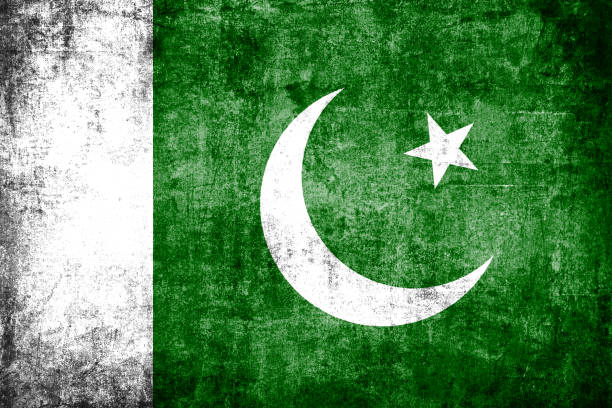
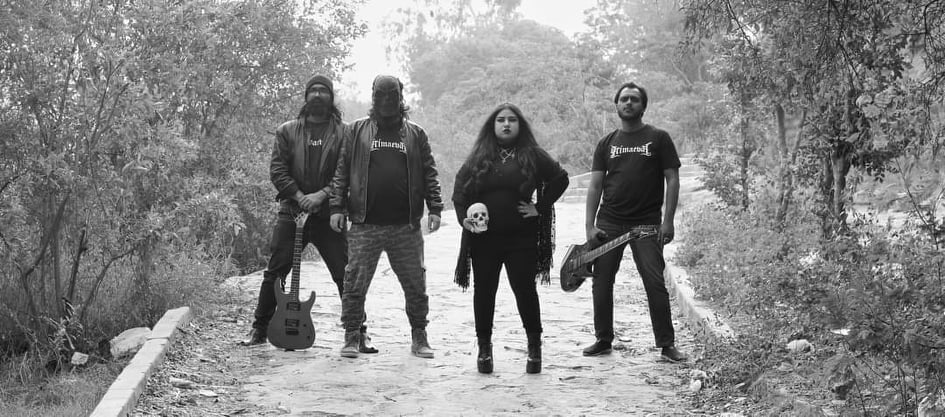
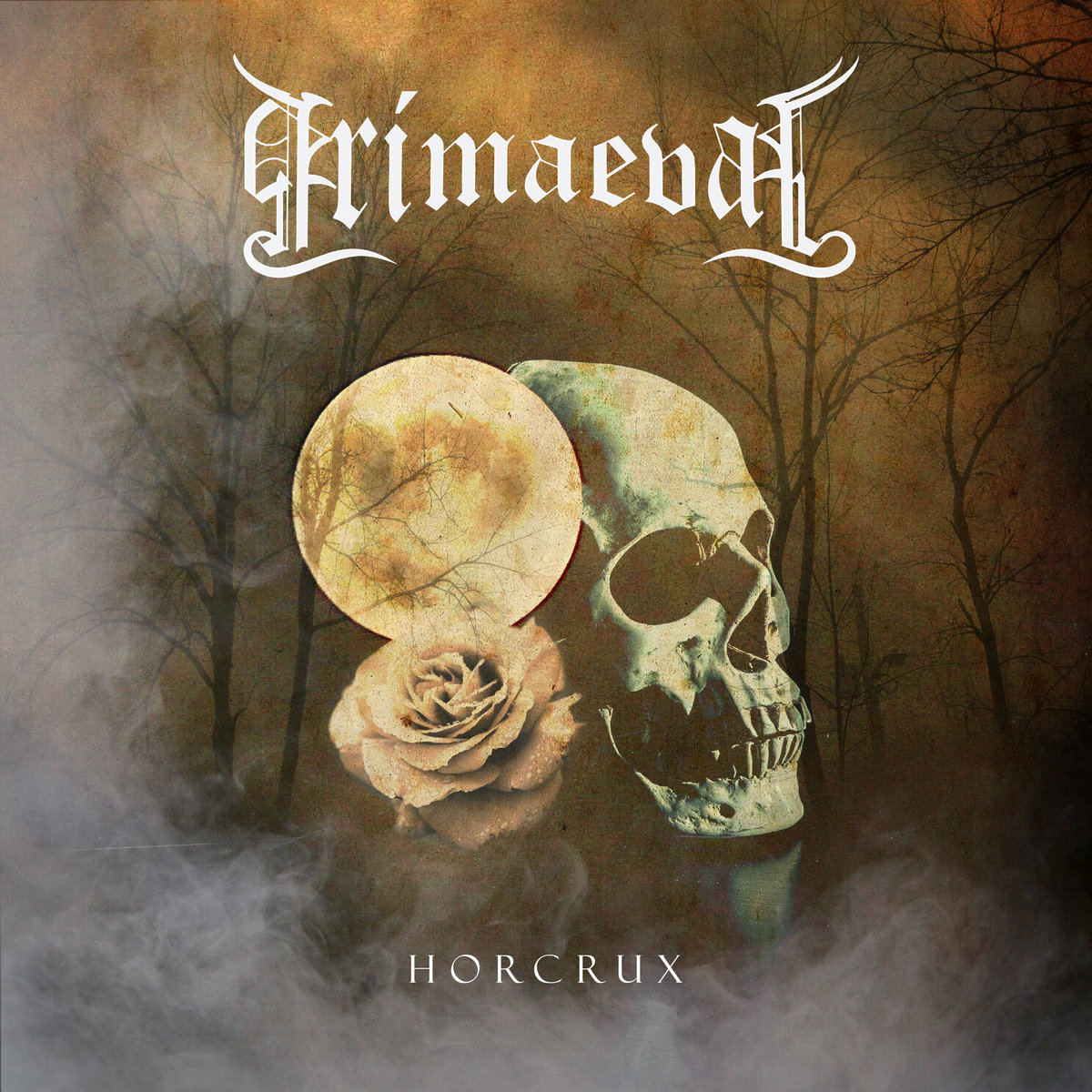
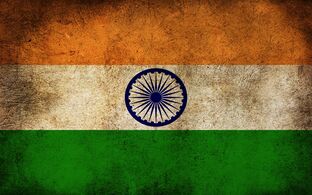
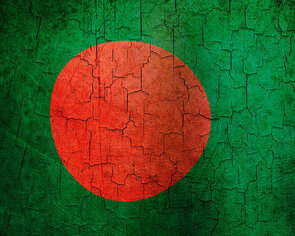
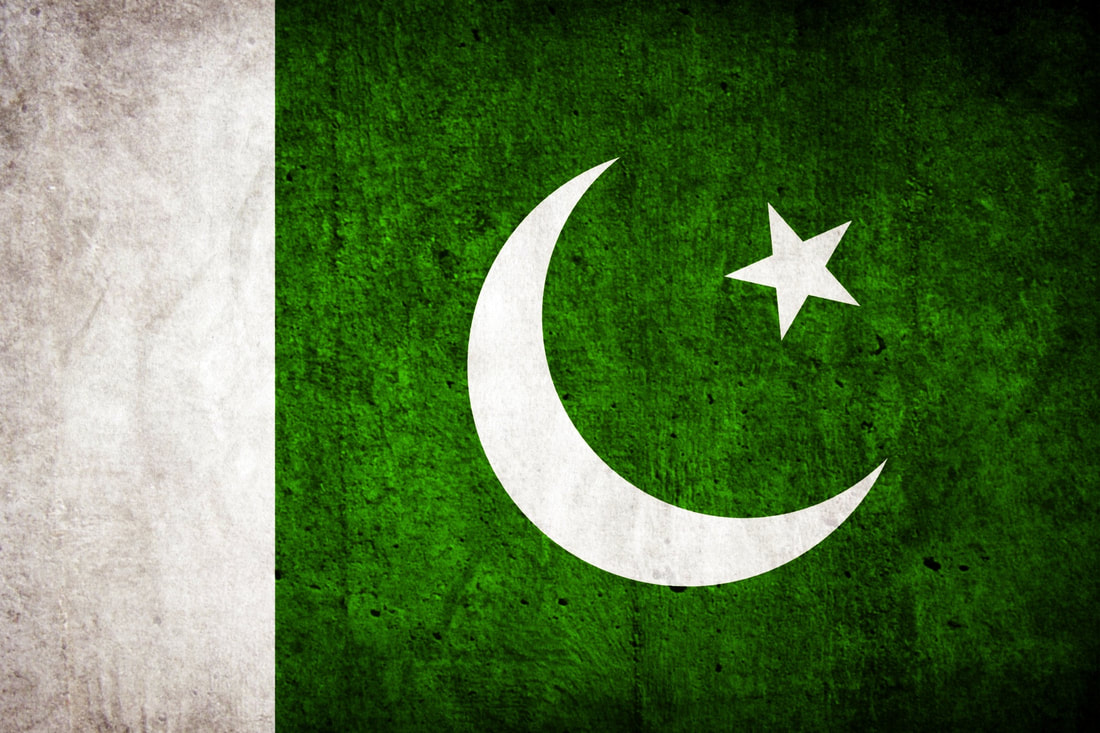
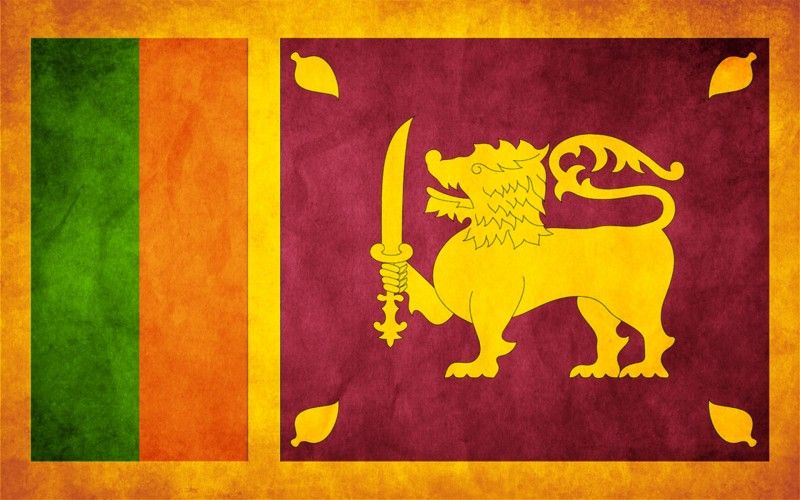
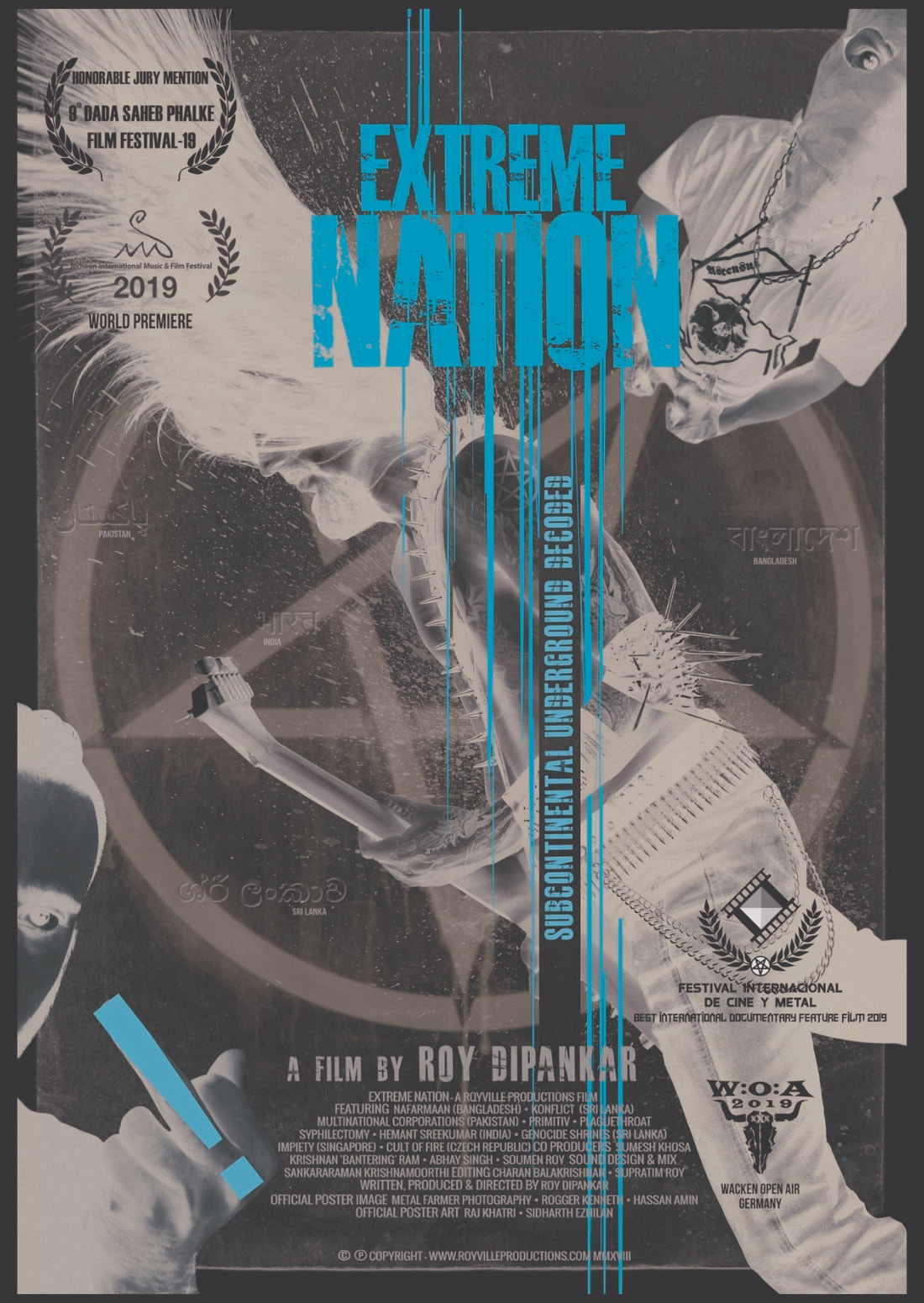
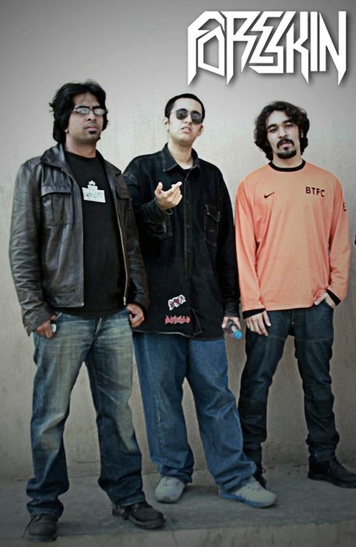
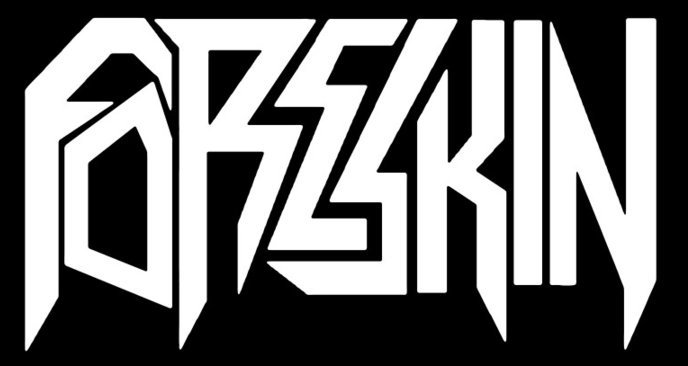
 RSS Feed
RSS Feed